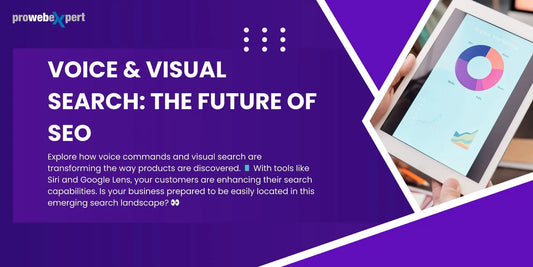
Top 7 CMS Platforms for eCommerce in 2025 – Build Smart, Sell Better
Share
In the current competitive digital environment, establishing a robust e-commerce presence involves more than merely offering products — it requires providing personalized, secure, and fast user experiences. The choice of a content management system (CMS) is crucial to achieving this goal.
As we approach 2025, content management systems have advanced significantly beyond simple website creation tools. They now facilitate smooth integration with applications, provide headless functionality, and are enhanced for search engine optimization, performance, and cross-channel commerce.
Why the Right CMS Matters for Your Online Store
Prior to exploring the leading platforms, let’s examine the essential characteristics that characterize an effective CMS for eCommerce in today's market:
-
Scalability: Is it capable of expanding alongside your business?
-
Ease of use: Is it user-friendly for your team to operate?
-
Customizability: Can it align with your brand’s distinct vision?
-
Headless support: Is it able to distribute content across various devices and platforms?
-
Search engine optimization: Will it assist in improving your store's ranking on Google?
-
Safety: Does it safeguard your data and the information of your customers
-
Compatibility: Is it able to integrate with tools such as CRMs, payment processors, marketing automation systems, and shipping providers?
Now, let’s explore the best options.
1. Shopify – Best All-in-One Solution for Fast Growth
Ideal for: Small to medium-sized businesses
Why choose it:
Shopify stands out as a leading CMS platform in the eCommerce industry, and for valid reasons. It provides a straightforward setup, allowing users to create a complete online store within a matter of hours. Thanks to the vast selection of applications available in the Shopify App Store, store owners can tailor their shops without needing to write any code.
Key features:
-
Clean and user-friendly dashboard
-
Built-in payment gateway
-
Excellent customer support
-
Mobile-optimized themes
-
Seamless POS integration
2. WooCommerce (WordPress) – Flexible & Content-Friendly
Ideal for: Content-heavy eCommerce stores
Why choose it:
You can turn your WordPress website into a powerful online store using WooCommerce. It is open-source and provides significant flexibility, particularly when combined with the extensive plugin ecosystem available in WordPress.
Key features:
-
Full control over your data
-
Thousands of themes and plugins
-
Strong SEO tools
-
Ideal for blogging + eCommerce integration
-
Low upfront cost
3. Adobe Commerce (Magento) – Enterprise-Level Power
Ideal for: Large businesses with complex needs
Why choose it:
Adobe Commerce, originally known as Magento, is the preferred option for brands seeking enhanced functionality, tailored features, and high-performance capabilities. Although it presents a more challenging learning curve, it provides unparalleled power.
Key features:
-
Multi-store management
-
Advanced product cataloging
-
B2B & B2C support
-
AI-driven product recommendations
-
Highly customizable with developer support
4. BigCommerce – Omnichannel Selling Made Easy
Ideal for: Mid-size to large businesses
Why choose it:
BigCommerce is a content management system based on SaaS that provides robust integrated tools and omnichannel connectivity. It enables sales through platforms like Amazon, Facebook, Instagram, and Google Shopping without the requirement for external applications.
Key features:
-
Headless commerce options
-
Native integration with marketplaces
-
Advanced SEO features
-
No transaction fees
-
Custom product rules
5. Wix eCommerce – Simple, Stylish & Affordable
Ideal for: Solopreneurs and small creative businesses
Why choose it:
Wix is well-known for its elegant templates and easy-to-use drag-and-drop interface. Although it may not be as robust as Shopify or Magento, it is perfect for anyone looking to create a sleek, visually appealing store without much hassle.
Key features:
-
Stunning templates
-
Beginner-friendly interface
-
Low cost
-
Mobile-optimized
-
In-built marketing tools
6. Squarespace Commerce: Using eCom Resources in an Elegant Way
Ideal for: Companies that are creative and have a distinctive visual style
Why choose it:
Squarespace simplifies the process of creating visually appealing websites. It includes integrated functionalities for scheduling, digital items, and subscriptions, making it suitable for those providing more than merely tangible products.
Key features:
-
Sleek UI/UX templates
-
Built-in email marketing
-
Social media integrations
-
Inventory management
-
Subscriptions and digital downloads
7. Strapi – Best Headless CMS for Developers
Ideal for: Tech-savvy teams & mobile-first brands
Why choose it:
Strapi is a headless content management system that provides complete API flexibility. It decouples content creation from the user interface, simplifying the process of delivering tailored experiences across various platforms such as web and mobile.
Key features:
-
API-first approach
-
Customizable admin panel
-
Works well with React, Vue, Angular
-
Content versioning
-
Open-source
How Do You Pick the Best CMS for Your Company?
Here are some brief guidelines to help you make your choice:
-
For newcomers: Shopify, Wix, Squarespace
-
For those focused on blogging or content sales: WooCommerce
-
For brands selling through multiple channels: BigCommerce
-
For custom dev-heavy needs: Magento, Strapi
-
For budget-conscious creators: Wix, WooCommerce (self-hosted)
Also, ask yourself:
-
Will you manage the store in-house or hire an agency?
-
Do you prefer long-term customisation or a quick launch?
-
Are mobile apps or headless commerce part of your roadmap?
Conclusion: CMS is the Backbone of Your Online Success
Your eCommerce CMS serves as more than a mere tool — it's the cornerstone of your brand's experience. As customer expectations rise in 2025, the adaptability, efficiency, and user experience of your store will hinge on the platform you select.
Make a thoughtful choice, and you’ll position your business for enduring digital success.




